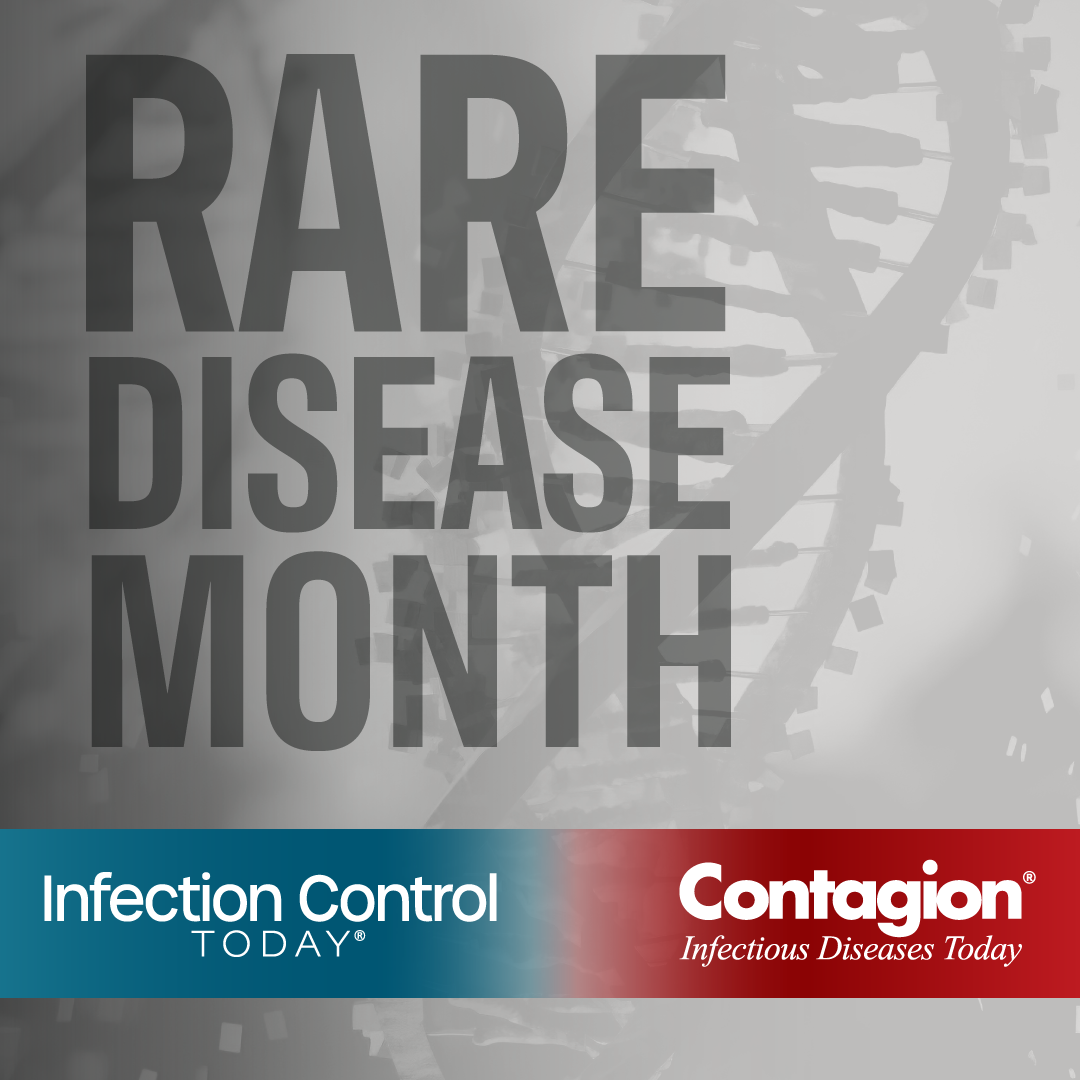Rare Disease Day 2024: Spotlight on Rare Infectious Diseases
Rare Disease Day on February 29, 2024, shines a global light on the impact of rare diseases, including rare infectious diseases. With a focus on early diagnosis and treatment access, this day highlights the struggles of those with rare conditions.
Rare Disease Month coverage in a collaboration between Infection Control Today and Contagion.

Rare Disease Day is an annual observance held on the last day of February to raise awareness about rare diseases and their impact on individuals and their families. This year it is observed on February 29, 2024. It was first launched in 2008 by the European Organization for Rare Diseases (EURORDIS) and has since gained global recognition, with participation from numerous patient organizations, health care professionals, researchers, policymakers, and the general public.
The primary goal of Rare Disease Day is to shed light on the challenges faced by those living with rare diseases and to advocate for their rights. Rare diseases are defined as conditions that affect a small number of people relative to the general population. In order for a disease to be considered rare, it must affect fewer than 1 in 2,000 people. In many cases, these diseases are chronic, progressive, debilitating, and life-threatening, posing significant medical, social, and economic burdens on patients and their families.
One of the key aspects of Rare Disease Day is to highlight the importance of early diagnosis and access to appropriate treatment and care for individuals with rare diseases. 70% of rare diseases start in childhood, therefore early diagnosis and treatment is critical for patients. Due to the rarity and often complex nature of these conditions, patients frequently experience delays in diagnosis, misdiagnosis, and difficulties in accessing specialized medical expertise and treatments. This can result in prolonged suffering, unnecessary complications, and reduced quality of life.
Some examples of rare infectious diseases include blastomycosis, Ebola, malaria, measles, and diseases from prions. Other examples of rare diseases that are not infectious and are not well-known are Gaucher Disease, Leiomyosarcoma, Osteogenesis Imperfecta, Retinitis Pigmentosa, epidermolysis-bullosa, and calmodulin-dependent serine Protein Kinase (CASK). A Rare Disease database can be found here: https://rarediseases.org/rare-diseases/?starts_with=C with an overview of each disease.
Rare Disease Day also serves as a platform to advocate for research into rare diseases. Despite their individual rarity, collectively, rare diseases affect millions of people worldwide. However, research and development efforts for many rare diseases are often underfunded and lacking compared to more common diseases. Increased investment in research is crucial for understanding the underlying causes of rare diseases, developing new therapies, and ultimately improving outcomes for patients.
Additionally, Rare Disease Day seeks to foster solidarity and support within the rare disease community. By sharing personal stories, experiences, and resources, individuals and families affected by rare diseases can connect with others facing similar challenges, find support networks, and advocate collectively for their needs and rights.
Throughout Rare Disease Day, various events and activities are organized worldwide, including educational seminars, patient conferences, fundraising campaigns, social media campaigns, and awareness-raising initiatives. These efforts aim to amplify the voices of those affected by rare diseases, educate the public and healthcare professionals, and ultimately drive positive change in policies, practices, and perceptions surrounding rare diseases.
For more information regarding Rare Disease Day, visit https://www.rarediseaseday.org/
Newsletter
Stay prepared and protected with Infection Control Today's newsletter, delivering essential updates, best practices, and expert insights for infection preventionists.
Reducing Hidden Risks: Why Sharps Injuries Still Go Unreported
July 18th 2025Despite being a well-known occupational hazard, sharps injuries continue to occur in health care facilities and are often underreported, underestimated, and inadequately addressed. A recent interview with sharps safety advocate Amanda Heitman, BSN, RN, CNOR, a perioperative educational consultant, reveals why change is overdue and what new tools and guidance can help.
New Study Explores Oral Vancomycin to Prevent C difficile Recurrence, But Questions Remain
July 17th 2025A new clinical trial explores the use of low-dose oral vancomycin to prevent Clostridioides difficile recurrence in high-risk patients taking antibiotics. While the data suggest a possible benefit, the findings stop short of statistical significance and raise red flags about vancomycin-resistant Enterococcus (VRE), underscoring the delicate balance between prevention and antimicrobial stewardship.
What Lies Beneath: Why Borescopes Are Essential for Verifying Surgical Instrument Cleanliness
July 16th 2025Despite their smooth, polished exteriors, surgical instruments often harbor dangerous contaminants deep inside their lumens. At the HSPA25 and APIC25 conferences, Cori L. Ofstead, MSPH, and her colleagues revealed why borescopes are an indispensable tool for sterile processing teams, offering the only reliable way to verify internal cleanliness and improve sterile processing effectiveness to prevent patient harm.
The Next Frontier in Infection Control: AI-Driven Operating Rooms
Published: July 15th 2025 | Updated: July 15th 2025Discover how AI-powered sensors, smart surveillance, and advanced analytics are revolutionizing infection prevention in the OR. Herman DeBoard, PhD, discusses how these technologies safeguard sterile fields, reduce SSIs, and help hospitals balance operational efficiency with patient safety.
Targeting Uncertainty: Why Pregnancy May Be the Best Time to Build Vaccine Confidence
July 15th 2025New national survey data reveal high uncertainty among pregnant individuals—especially first-time parents—about vaccinating their future children, underscoring the value of proactive engagement to strengthen infection prevention.